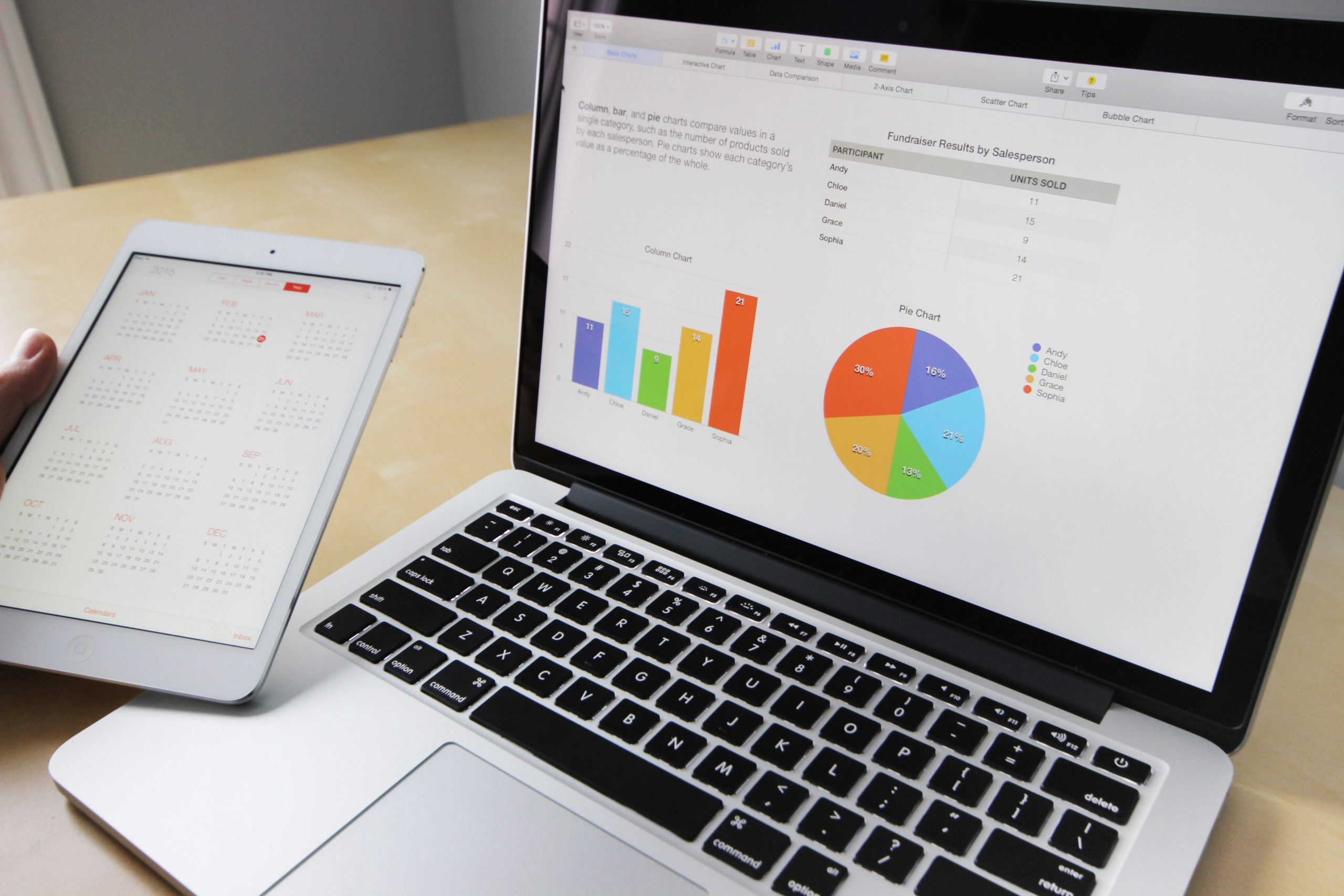In today’s digital landscape, the use of analytics tools has become crucial for businesses to understand their online presence and make informed decisions. However, with the increasing concern over data privacy, it is essential for companies to establish a clear and comprehensive privacy policy for analytics tools. This article will provide a concise overview of the key elements that should be included in a privacy policy, addressing concerns such as data collection, storage, and protection. By understanding these essential aspects, businesses can ensure that they comply with regulations and build trust with their customers in an increasingly data-driven world.

Privacy Policy for Analytics Tools
In today’s digital era, analytics tools play a crucial role in providing valuable insights and data about user behavior, website performance, and more to businesses. However, with the increasing concerns about privacy and data protection, it is essential for businesses to prioritize the implementation of a comprehensive privacy policy for analytics tools. This article aims to provide a comprehensive guide to understanding the importance of privacy policies for analytics tools, the legal framework and compliance requirements, the data collection process, data storage and security measures, data usage and purpose, data sharing with third parties, and the use of cookies and tracking technologies. By familiarizing yourself with these aspects, you can ensure that your business adheres to best practices in protecting user privacy.
Introduction to Analytics Tools and Data Collection
What are analytics tools?
Analytics tools are software or platforms designed to collect, process, analyze, and interpret data related to user interactions, behaviors, and website performance. These tools enable businesses to gain valuable insights, make informed decisions, and improve their products or services based on the data collected.
Importance of data collection
Data collection is crucial for businesses as it provides insights into consumer behavior, preferences, and trends. By understanding how users interact with their websites, businesses can optimize their marketing strategies, enhance user experience, and improve overall performance. Without data collection, businesses would be operating blindly, missing out on opportunities for growth and improvement.
Types of data collected by analytics tools
Analytics tools collect various types of data, including but not limited to:
- User demographic information (e.g., age, gender, location)
- User interaction data (e.g., clicks, page views, session duration)
- Conversion data (e.g., purchases, sign-ups, downloads)
- Referral sources (e.g., search engines, social media platforms)
- Device information (e.g., browser type, operating system)
The specific data collected may vary depending on the analytics tool used and the preferences of the business.
Legal Framework and Compliance
Data protection laws
Data protection laws aim to safeguard individuals’ personal information and regulate its collection, processing, and storage by organizations. These laws require businesses to implement appropriate measures to protect user privacy and ensure compliance with applicable regulations.
General Data Protection Regulation (GDPR)
The General Data Protection Regulation (GDPR) is a comprehensive data protection law in the European Union (EU). It sets out strict rules regarding the collection, processing, and storage of personal data and imposes significant penalties for non-compliance. If your business operates in the EU or processes the personal data of EU residents, it is essential to understand and comply with the GDPR requirements.
California Consumer Privacy Act (CCPA)
The California Consumer Privacy Act (CCPA) is a state privacy law in California, United States. It grants California residents certain rights over their personal data and requires businesses operating in California to disclose their data collection practices, offer opt-out options, and provide detailed privacy policies. If your business targets California residents or collects their personal information, compliance with the CCPA is crucial.
Other relevant privacy laws
Apart from the GDPR and CCPA, there are several other privacy laws globally that businesses must consider when implementing analytics tools. Some notable examples include the Personal Information Protection and Electronic Documents Act (PIPEDA) in Canada, the Privacy Act in Australia, and the Brazil General Data Protection Law (LGPD).
User Consent and Opt-out Options
Importance of user consent
Obtaining user consent is a fundamental aspect of privacy protection. Businesses must clearly outline their data collection practices and seek explicit consent from users before collecting their personal information. User consent ensures transparency and empowers individuals to make informed decisions about sharing their data.
Providing opt-out options
In addition to obtaining consent, businesses should offer users the option to opt out of data collection if they choose to. This helps respect user privacy preferences and allows individuals to control the information they share.
Obtaining explicit consent for data collection
To ensure compliance with privacy laws, businesses should implement mechanisms to obtain explicit consent from users. This can be achieved through consent checkboxes, pop-up notifications, or other clearly visible methods that require users to actively agree to the data collection practices before proceeding.

Data Collection Process and Methods
Collection of personally identifiable information (PII)
Personally identifiable information (PII) refers to data that can be used to identify an individual, such as their name, email address, or contact details. When collecting PII through analytics tools, businesses must handle this data with utmost care and confidentiality to protect user privacy.
Tracking user interactions and behavior
Analytics tools track various user interactions and behaviors on websites to provide valuable insights. This may include recording page views, clicks, scrolling behavior, form submissions, and other actions that users take while browsing a website. By analyzing this data, businesses can improve their websites and tailor their offerings to user preferences.
Methods used for data collection
Analytics tools use different methods to collect data, such as:
- JavaScript tags: These are snippets of code inserted into website pages to gather information about user behavior.
- Cookies: Cookies are small text files stored on a user’s device that track their interactions and preferences.
- IP tracking: Tracking IP addresses helps identify user locations and other relevant information.
- User surveys: Businesses may collect data through surveys or feedback forms to obtain specific insights directly from users.
The choice of data collection method may depend on the analytics tool used and the desired level of data granularity.
Data Storage and Security Measures
Secure storage of collected data
Businesses must ensure that the data collected through analytics tools is securely stored to prevent unauthorized access, data breaches, or misuse. Implementing robust security measures, such as encryption, firewalls, and access controls, is crucial to protect sensitive user information.
Encryption and data protection
Encryption is a process that encodes data in a way that can only be decrypted with a specific key or password. By encrypting collected data, businesses can add an extra layer of protection, reducing the risk of data breaches and unauthorized access.
Data retention policies
To comply with privacy laws and regulations, businesses should implement data retention policies that define how long user data will be stored. Retaining data for longer than necessary can increase the security and privacy risks for both businesses and users. It is essential to regularly review and update data retention policies to align with changing legal requirements.
Data Usage and Purpose
Legal basis for data usage
Businesses must have a legitimate legal basis to collect, process, and use user data. This can include obtaining user consent, fulfilling contractual obligations, legitimate interests, or complying with legal obligations. It is crucial to clearly specify the legal basis for data usage in the privacy policy to ensure transparency with users.
Providing analytics and insights
The primary purpose of analytics tools is to provide businesses with valuable analytics and insights. By analyzing data collected through these tools, businesses can gain a deeper understanding of user behavior, preferences, and trends. This information can then be used to improve marketing strategies, enhance user experience, and drive business growth.
Improving website performance and user experience
Analytics tools play a vital role in identifying areas for improvement on websites. By analyzing user behavior data, businesses can optimize website navigation, page loading times, and overall user experience. This leads to increased user satisfaction, engagement, and ultimately, higher conversion rates.
Data Sharing and Third-Party Integration
Sharing data with third-party services
In some cases, businesses may share data collected through analytics tools with third-party service providers. This may include sharing data with marketing agencies, advertising platforms, or other vendors involved in providing analytics solutions. When sharing data, businesses must ensure that appropriate contractual agreements and safeguards are in place to protect user privacy.
Contracts and agreements with third-party vendors
Before sharing data with third-party vendors, it is essential to have written contracts or agreements in place that clearly outline the responsibilities, obligations, and restrictions associated with data sharing. These contracts should include provisions requiring compliance with applicable privacy laws and regulations and should address data security and confidentiality.
Ensuring third-party compliance with privacy policies
When sharing data with third parties, businesses are responsible for ensuring that these parties comply with the privacy policy and applicable privacy laws. Regularly reviewing the privacy practices of third-party vendors can help maintain data privacy and security standards.

Cookies and Tracking Technologies
Use of cookies and similar tracking technologies
Cookies and similar tracking technologies are commonly used by analytics tools to collect and store data about user interactions and preferences. Cookies help personalize user experiences, provide relevant content, and facilitate website functionality. However, businesses must obtain user consent for the use of cookies, as required by privacy laws.
Types of cookies used
Different types of cookies are used for various purposes, including:
- Session cookies: These cookies are temporary and are deleted once a user closes their browser.
- Persistent cookies: Persistent cookies remain on a user’s device until they expire or are manually deleted.
- First-party cookies: First-party cookies are set by the website being visited and are primarily used for website functionality and analytics.
- Third-party cookies: Third-party cookies are set by domains other than the website being visited and are often used for advertising and tracking.
Managing cookie preferences and settings gives users control over the types of cookies they accept and can help protect their privacy.
FAQs about Privacy Policy for Analytics Tools
1. What is the purpose of a privacy policy for analytics tools?
A privacy policy for analytics tools serves as a transparent communication tool between businesses and users, outlining the data collection, usage, and storage practices associated with analytics tools. It helps users understand how their data is being handled, promoting trust and compliance with legal requirements.
2. Can users opt out of data collection by analytics tools?
Yes, users have the right to opt out of data collection by analytics tools. Businesses must provide clear opt-out options and respect users’ privacy preferences. Giving users control over their data encourages transparency and promotes a user-centric approach to data collection.
3. How can businesses ensure compliance with privacy laws when using analytics tools?
To ensure compliance with privacy laws, businesses should:
- Implement a privacy policy that clearly outlines data collection and usage practices.
- Obtain explicit consent from users for data collection.
- Offer opt-out options for users who do not wish to have their data collected.
- Store and protect collected data securely.
- Regularly update privacy policies to reflect changing legal requirements.
Working with legal professionals can provide guidance and expertise in meeting privacy law compliance obligations.
4. What are the key data protection regulations for analytics tools?
The key data protection regulations for analytics tools include the General Data Protection Regulation (GDPR) in the EU and the California Consumer Privacy Act (CCPA) in California, USA. These regulations impose strict requirements on data collection, usage, and storage and can significantly impact businesses operating in these jurisdictions.
5. How long should collected user data be retained?
The retention period for collected user data should be determined based on the purpose for which the data was collected and in compliance with applicable legal requirements. It is recommended to establish data retention policies that clearly define the retention periods for different types of data and regularly review and update these policies to align with evolving legal obligations.
